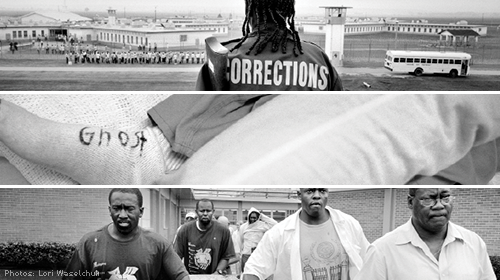
Here's some truth for you: many federal prisoners would receive substantially shorter sentences for the exact same crime if they were sentenced today under the current law. Many would have already served their time and paid their debt to society. Instead, because of outdated laws that are now recognized as unjust, they remain in prison at a cost of millions of taxpayer dollars each year.
That's why the Department of Justice's announcement today is such a big deal. Deputy Attorney General James Cole this morning that the DOJ and White House will use when considering clemency petitions from federal prisoners.
Under these new criteria, the DOJ and White House are from federal prisoners who have served at least 10 years for nonviolent crimes, have no history of violence and no significant ties to gangs or cartels, have demonstrated good conduct in prison, and would have received a shorter sentence if sentenced today.
With today's announcement, President Obama now has a momentous opportunity to give many Americans who have been unnecessarily locked up for far too long the opportunity to reunite with their families.
Since 1980 our federal prison population has grown by 800 percent, and the federal prison system is now nearly 40 percent over capacity. Over 2,000 federal prisoners are serving life without parole for nonviolent drug crimes, and many more are serving unduly harsh sentences for nonviolent offenses.
While some Republican and Democrat state governors consistently use their executive clemency powers, President Obama has instead granted clemency than that of any modern president. This is a historic opportunity for President Obama to start undoing the damage done by federal sentencing laws that have shattered families, wasted millions of dollars, and caused our federal prison population to balloon out of control.
The DOJ has made clear it has set up a sensible, careful process to carefully scrutinize petitions and select deserving people for reduction of sentence who pose no risk to public safety. To help aid the process, the DOJ plans to assign more attorneys to review these cases and has appointed Debby Leff as the new pardon attorney. We look forward to new and more effective leadership in the pardon attorney's office, which over the past few years cases for presidential clemency.
To support petitioners and bring their cases to the attention of the President, the ņŌįń√ŇŅ™ĹĪĹŠĻŻ, together with the Federal Defenders, Families Against Mandatory Minimums, the American Bar Association, and National Association of Criminal Defense Lawyers, has formed Clemency Project 2014, a working group to provide pro bono assistance to federal prisoners who meet the new clemency criteria.
Today's announcement is historic news. Yet even with President Obama using his clemency power on a broader scale, he simply won't be able to commute every excessive sentence. The sentencing laws themselves are the problem.
Congress needs to pass the Smarter Sentencing Act, a bill of systemic reform which would make our criminal justice system smarter, fairer, and more humane. Presidential commutations are essential to restore some degree of justice for individual prisoners currently serving unjust sentences, but only Congress can prevent the need for commutations tomorrow.
Learn more about mandatory minimum sentences and other civil liberty issues: Sign up for breaking news alerts, , and .
